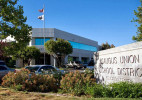 Taking a cold shower has its connotations, but having a faulty water heater during the middle of winter, even in California, makes it measurably uncomfortable.
Taking a cold shower has its connotations, but having a faulty water heater during the middle of winter, even in California, makes it measurably uncomfortable.
Diagnosing a water heater valve problem nowadays is easy over the Internet, but realizing the complications, especially getting burned or scalded, made me reconsider a do-it-yourself fix. So I called my local plumber and in 15 minutes, voila, the job was done. Price: $350. It was a weekday morning, not a holiday, with an available part from his truck … done as skillfully as seen on the YouTube video. Yep, I could have done it myself, if not for my medical fear of third-degree burns.
Physicians laugh at the many jokes of retiring doctors becoming plumbers and making more money. But as a primary care internist, this cost brought me to wonder about the skills of my surgical colleagues and their congressionally determined Medicare payments.
Physician reimbursement is created by political people who have no vested interest, as they have their own healthcare plan and will never be on Medicare. It seems counter-intuitive. But I was curious to know how much surgeons get paid for common problems such as repairing a hip fracture, removing a subdural hematoma (bleeding inside the skull), and triple vessel bypass heart surgery.
Got any guesses?
Before I give the answer, some of you know these surgeons are specialists who trained at least six to eight years beyond medical school. An orthopedist will fix the hip, a neurosurgeon open the skull, and a cardiothoracic surgeon will crack the chest.
Each of these procedures takes at least two hours and can last over six hours. Knowing also the potential complications and side effects comes from the extra years of training to adjust and think on one’s feet during the procedure, which could mean the difference between a good or bad outcome.
Most importantly, ultimate success in these procedures might allow an individual to return to his family, home and place of work, to be a viable part of the community and have a sustainable quality of life. Yes, maybe even have a warm shower.
So, what do these surgeons get payed by Medicare?
Orthopedist for hip surgery: $1,000.
Neurosurgeon for brain surgery: $1,200.
Cardiothoracic surgeon for triple-vessel bypass: $1,800.
These amounts vary regionally due to cost-of-living adjustments. I also forgot to mention the concept of “bundling,” where all post-operative follow-up appointments are included in the physician payment.
Maybe you’re not surprised and believe the payments are adequate. But this is the reason many doctors, especially surgeons, are opting out and not treating Medicare patients. Understandably, they cannot now pay their malpractice premiums nor run an office. These costs have gone up, while surgical reimbursement has gone down considerably.
For patients who look at their hospital Medicare statements and see thousands and thousands of dollars, scrutinize them carefully. You’ll see almost all costs are not billing from your doctor.
So I ask: Keeping it in perspective with my plumber and other community specialists including an auto mechanic, real estate broker, attorney, veterinarian, accountant and dentist, is the hourly fee and training commensurate with the responsibilities?
There, now, I’ve made a lot of enemies.
It is not my purpose to compare responsibilities and professional payments. Knowing and understanding specifically why medical care for the elder senior community has been placed in jeopardy for lack of available doctors is vital to all of us (again, except members of Congress who are not subject to Medicare). This dilemma must be on the radar of the American people.
The public is not aware of these diminishing Medicare payments, and physicians serving their patients and adhering to the Hippocratic oath have barely brought this issue forward.
Doctors have committed their lives to serving society and have the training to provide a service for community good. But government and business have created an environment marginalizing physician skills for self-serving politics and profit.
So in the future, when grandma falls and breaks her hip, check YouTube for a do-it-yourself fix might be the only solution to her problem.
Next time for me, I’ll change the valve on our water heater myself.
Gene Uzawa Dorio, M.D., is a housecall geriatric physician on staff at Henry Mayo Newhall Memorial Hospital and has been engaged as an advocate in many community activities. The views expressed in this column as his alone.
Like this:
Like Loading...
Related





 Tweet This
Tweet This Facebook
Facebook Digg This
Digg This Bookmark
Bookmark Stumble
Stumble RSS
RSS









































REAL NAMES ONLY: All posters must use their real individual or business name. This applies equally to Twitter account holders who use a nickname.
2 Comments
I saw Dr. Dorio in Culver City yesterday. #Random
You’re right Kyle. I took my 92 year old mom to Olive Garden at Fox Hill Mall. Next time, drop by and say hi.
Gene Uzawa Dorio, M.D.